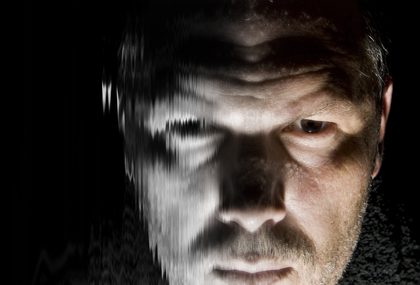Types of personality disorder
Personality disorders tend to fall into three groups or 'clusters'. Within these clusters there are distinct and complex sub-groups.
-
Cluster A - Suspicious

- Cluster B - Emotional and Impulsive
- Cluster C - Anxious
Suspicious
- Paranoid - Suspicious of other people, jump to negative conclusions, feel others are being malicious or threatening. Sufferers find it hard to trust or confide thinking other people may be 'against' them or untrustworthy.
-
Schizoid - Schizoid personalities generally prefer solitude and find forming relationships difficult. They may feel others interfere with their lives and so prefer being alone or in a fantasy than interacting socially. They may find it hard to be socially stimulated and have little emotion.
-
Schizotypal - Schizotypal personality disorder sufferers have beliefs, opinions or thoughts that others see as strange 'eccentric' or unusual. One may suffer delusions, they may believe they have a super power for example, they may also see or hear strange things that other people do not.
Emotional and impulsive
- Antisocial - Antisocial refers to behaviours that disregard or harm other people. Manipulation, recklessness and a lack of guilt are common characteristics. The condition usually starts in childhood or early adolescence and to be diagnosed with this disorder you will have had a diagnosis of conduct disorder in childhood. Often people with antisocial behaviour disorder do not seek help as they may not recognise they have a problem. Signs and symptoms are quite akin to what many people know as 'psychopathy' in the fact that a person with the condition may have little or no feelings of guilt or remorse even when they have done wrong or caused harm.
- Borderline - Emotional instability underpins this disorder. A sufferer may very well have difficulty keeping relationships, often they will be prone to risk taking, impulsive behaviours. Sufferers may also lack a strong sense of identity and be changeable depending on mood and company. Black and white thinking and mood swings are also strong characteristics of this disorder. You may experience psychotic symptoms. Self harm and suicidal thoughts are common in those with BPD.
- Histrionic - Intense and emotional mood swings and a need to be the centre of attention. People with histrionic personality disorder seek approval from others and may have little sense of real self-worth. They may act flirtatiously or inapropriatly in order to satisfy the need to be accepted. A desire for excitement and drama can lead sufferers into risk taking behaviours or relationships.
- Narcissistic - Often narcissistic personality disorder sufferers will present as selfish, exploitative, self-important individuals with an over inflated opinion of themselves. The outer arrogance however masks low self-esteem and a need for reassurance and approval. A sufferer may crave power and success and be very sensitive to criticism.
Anxious
- Obsessive compulsive - Not to be confused with obsessive compulsive disorder which is a different condition. Obsessive compulsive personality disorder sufferers will be preoccupied by perfectionism and have a need for a sense of control and order. They can be highly critical or judgemental of themselves but can also be this way towards others they may have very high moral standards and obsessional thoughts and behaviours.
- Avoidant - Avoidant personality disorder sufferers will feel they are not worthy or are inferior to others. This and a fear of rejection and ridicule will give them a tendency to avoid social situations. They may even avoid work as the condition can create such feelings of anxiety.
- Dependent - A sufferer of this type of personality disorder will feel inadequate or inferior and have difficulty making decisions or taking responsibility. They often look to others to guide them and may fall into situations they find uncomfortable as they seek approval and fear abandonment.





